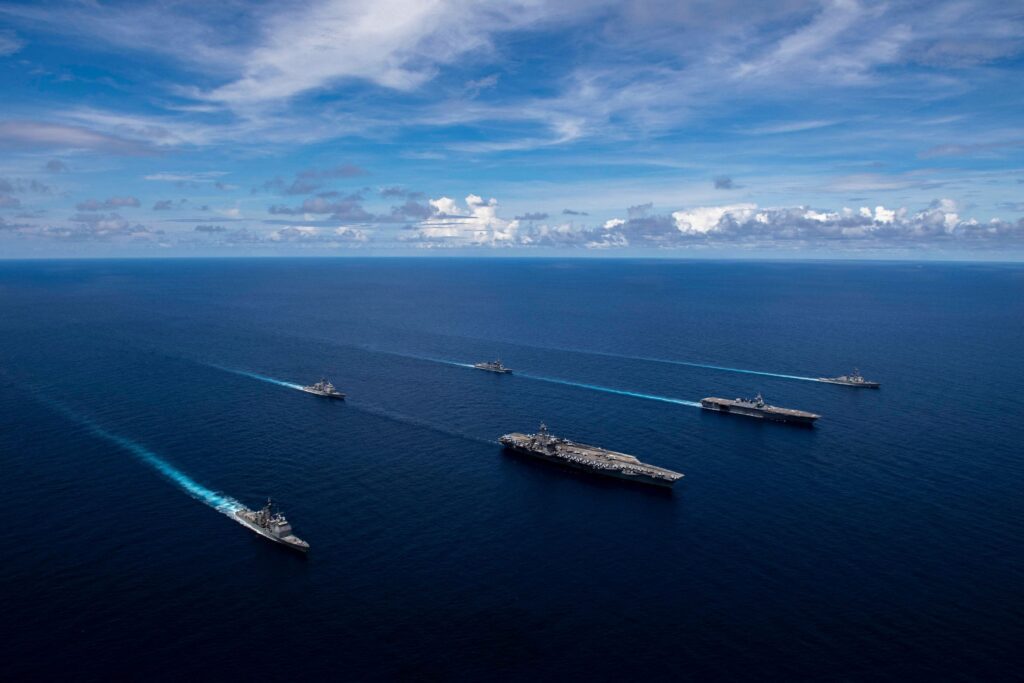The South China Sea is a hotbed of tensions and disputes among surrounding countries, with rising power rivalries and competing territorial claims. China, Vietnam, the Philippines, Malaysia, and Brunei all stake claims in the region, with China particularly assertive in its claims. The United States is also a key player, seeking to maintain its influence through freedom of navigation operations and military exercises. The region is a critical maritime trade route, with over $5 trillion in trade passing through its waters each year, making any disruptions or conflicts a significant global trade concern. The tensions also have broader security implications, with the potential for conflict and escalation, impacting the stability and security of the entire Asia-Pacific region. Peaceful resolutions are essential for maintaining stability and open trade routes in the South China Sea.
Tensions in the South China Sea
The South China Sea has always been a hotbed of tensions and disputes among the countries surrounding it. With rising power rivalries and competing territorial claims, the region has become a focal point of global trade and security concerns. The implications of these tensions are far-reaching and have the potential to impact global stability and trade.
Rising Power Rivalries
The South China Sea is a hotly contested region, with China, Vietnam, the Philippines, Malaysia, and Brunei all staking claims to various islands, reefs, and waters. China, in particular, has been assertive in its claims, building military bases and artificial islands in the region. This has led to increased tensions and rivalries among the regional powers.
The United States has also been a key player in the region, seeking to maintain its influence and presence through freedom of navigation operations and military exercises. This has further exacerbated the power rivalries in the area, with the U.S. and China engaging in a strategic competition for dominance in the region.
Implications for Global Trade
The South China Sea is a critical maritime trade route, with over $5 trillion in trade passing through its waters each year. Any disruptions or conflicts in the region have the potential to have a significant impact on global trade. The threat of piracy, territorial disputes, and military tensions all pose risks to the free flow of goods and commodities through the region.
Furthermore, the South China Sea is home to rich fishing grounds and potential oil and gas reserves, making it a valuable economic resource. The competition for control and access to these resources adds another layer of complexity to the global trade implications of the tensions in the region.
Security Concerns
The tensions in the South China Sea also have broader security implications for the region and the world. The militarization of the area, with the deployment of military assets and the construction of military bases, has raised concerns about the potential for conflict and escalation. The risk of accidental clashes or miscalculations further adds to the security concerns in the area.
The presence of major powers such as China and the U.S. in the region also raises the possibility of a larger geopolitical conflict with broader implications for global security. The South China Sea has become a flashpoint for power rivalries and strategic competition, with the potential to impact the stability and security of the entire Asia-Pacific region.
Conclusion
The tensions in the South China Sea are a complex and multifaceted issue with wide-ranging implications for global trade and security. The strategic competition among regional and global powers, the economic stakes, and the security concerns all contribute to the volatile situation in the region. It is essential for the countries involved to seek peaceful resolutions to the disputes and to work towards maintaining stability and open trade routes in the South China Sea.
